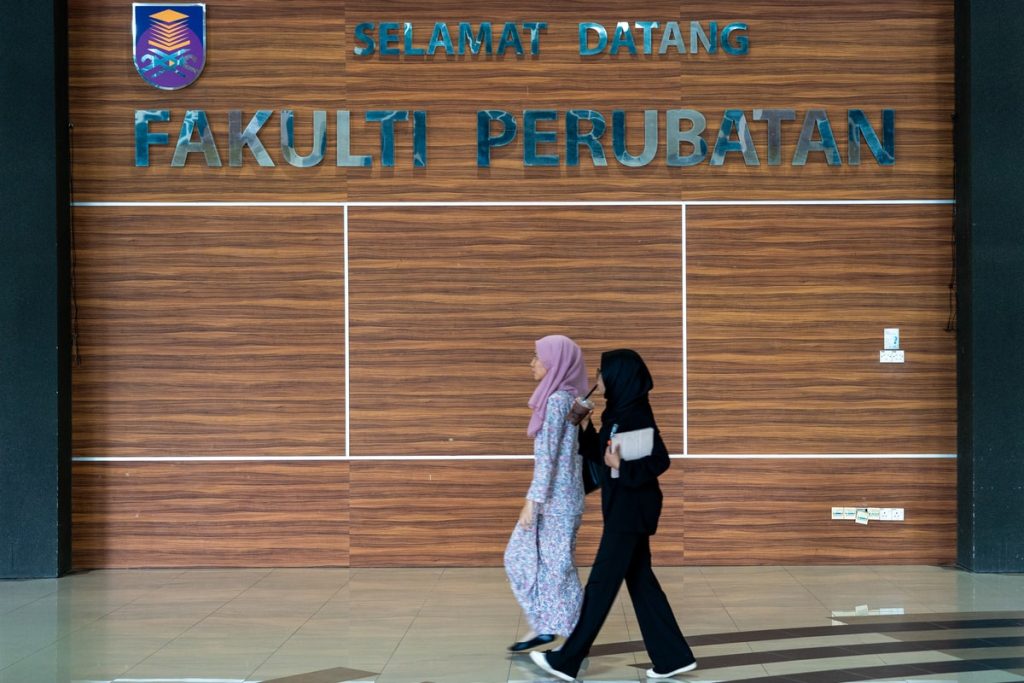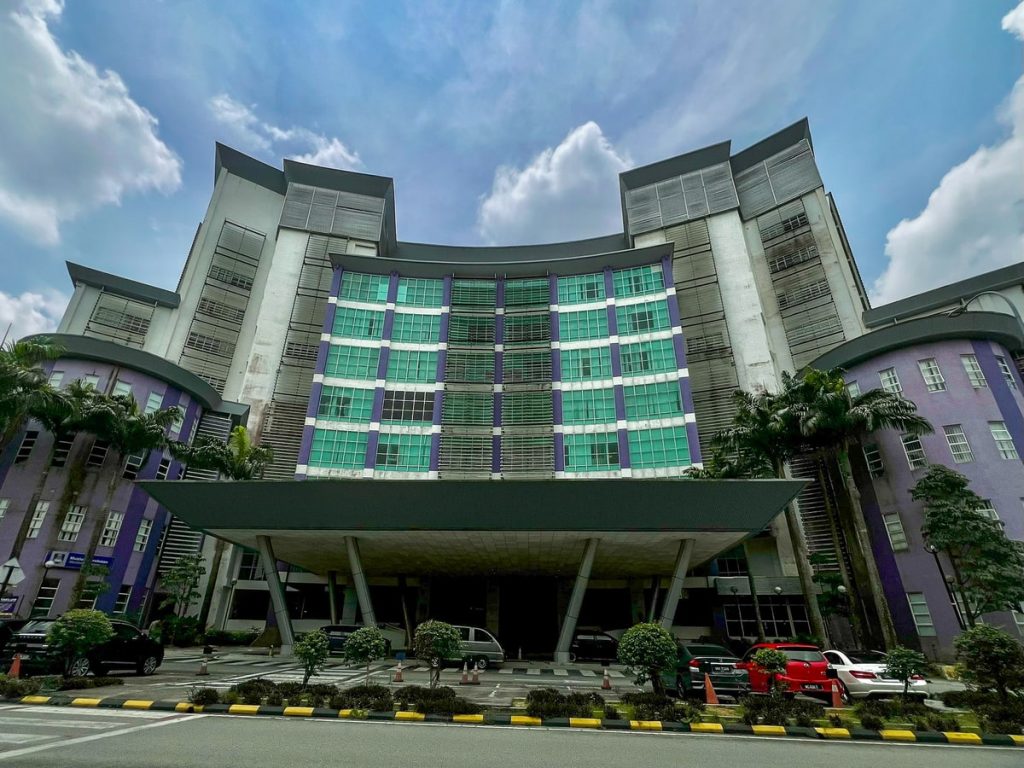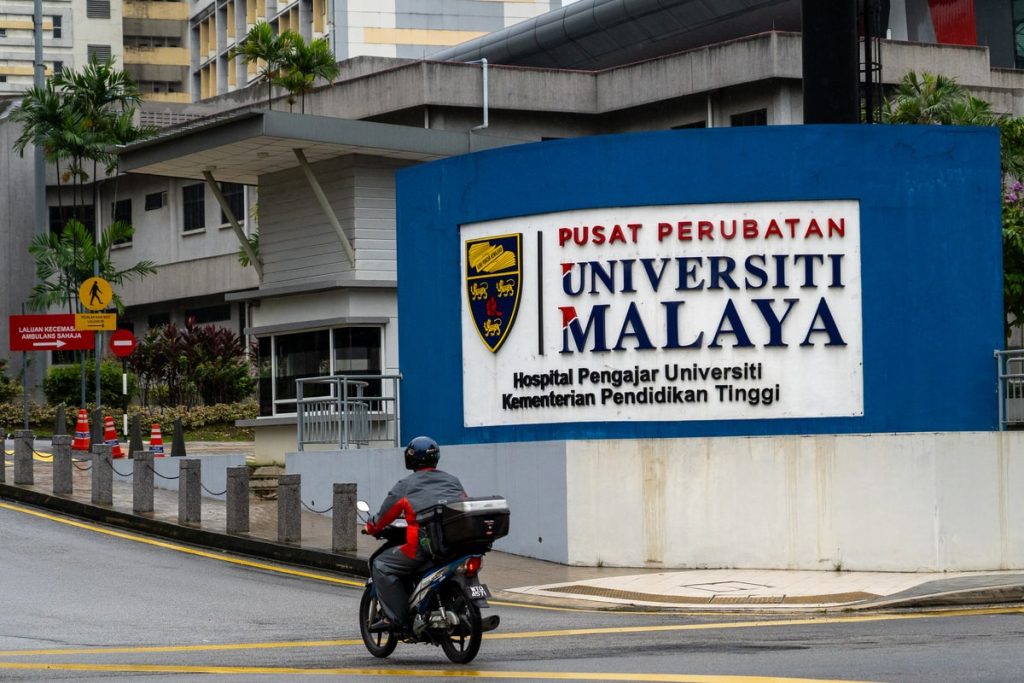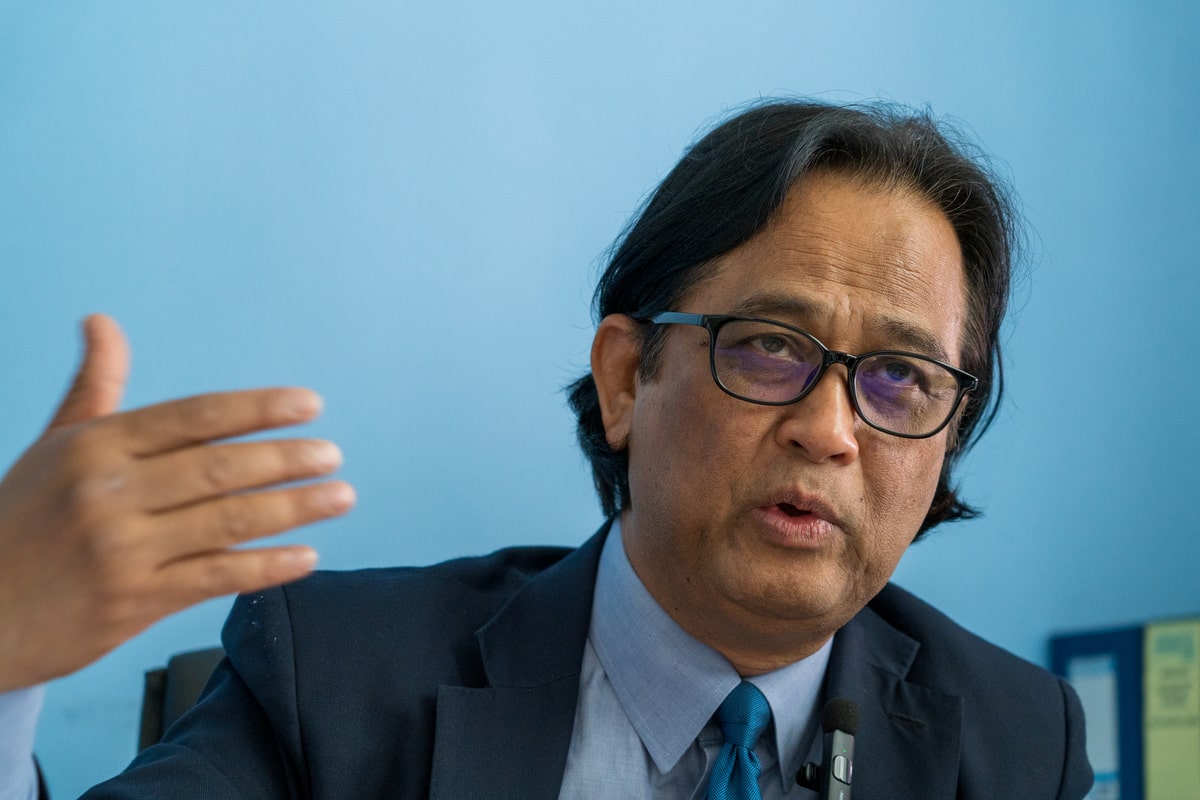SUNGAI BULOH, April 24 — Universiti Teknologi MARA (UiTM) is deeply confident that its postgraduate cardiothoracic surgery programmes, in collaboration with the National Heart Institute (IJN), will obtain full accreditation and, subsequently, recognition by the Malaysian Medical Council (MMC).
Prof Dr Zainuddin Md Wazir – the head of UiTM’s Department of Cardiovascular and Thoracic Surgery at the Faculty of Medicine at the Bumiputera-only public university – went to great lengths to explain the rigorous documentation for the country’s first local cardiothoracic surgery postgraduate programme that he believes will lead to registration of its graduates on the National Specialist Register (NSR).
UiTM-IJN’s cardiothoracic surgery postgraduate programmes – comprising a two-year Master in Surgical Sciences (Cardiothoracic) and a four-year Doctorate in Cardiothoracic Surgery – received provisional accreditation from the Malaysian Qualifications Agency (MQA) from August 13, 2020 to August 12, 2025.
Full accreditation is only made when the first cohort of students reaches their final year, after which the accredited programme is entered into the Malaysian Qualifications Register (MQR), according to Dr Zainuddin, who is also director of the UiTM-IJN cardiothoracic surgery postgraduate programme.
Then graduates will be able to register as specialists in cardiothoracic surgery on the NSR, as UiTM expects its programme to gain MMC recognition in the regulator’s list of recognised postgraduate qualifications.
The first cohort of graduates of UiTM-IJN’s cardiothoracic surgery postgraduate programme is expected in 2026.
“Anybody who actually runs a programme knows that this is a process – once you get full accreditation, you get into MQR, then automatic get NSR,” Dr Zainuddin, a senior consultant cardiothoracic surgeon, told CodeBlue during an exclusive interview at UiTM’s Faculty of Medicine in its Sungai Buloh Campus here last Monday.
“Why I say I’m confident – I promise I will do intensive calls, I deliver. I promise I will have the posting done this way. I deliver. I promise I will get the supervisory report every six months. I deliver. I promise I’ll go and talk to the student for whatever and handle their situation, I deliver. Exam, deliver; logbook criteria – I want this number, that number – I deliver. I want the thesis or dissertation done at a certain time, deliver.
“All the country’s programmes are like that – you have to deliver in order to get full accreditation. I’m confident because we monitor every three months, we monitor every six months. It’s an activity that we do in an academic institution. You cannot – just like that – get your name onto [MMC’s] list. No, there is a process to get onto that list and where we are now, we are following that standard.”
This process, Dr Zainuddin said, is the same for all local Master’s programmes in medicine. “Let’s say there’s a race – we are already almost 80 per cent there”.
Near 1:1 Trainee: Trainer Ratio, ‘Thorough’ Ranked Criteria for Student Admissions

There are currently 23 trainees with 22 supervisors in UiTM-IJN’s cardiothoracic surgery postgraduate programme, according to Dr Zainuddin, representing a near 1:1 ratio of trainer to trainee that is far better than the MMC’s guideline of 1:4 ratio for medical specialty training.
Dr Zainuddin was responding to the Malaysian Association for Thoracic & Cardiovascular Surgery’s (MATCVS) allegation that UiTM-IJN’s cardiothoracic surgery postgraduate programme doesn’t conform to the national curriculum.
He added that UiTM has a “thorough” ranked criteria for student admissions into its cardiothoracic surgery postgraduate programme that looks at the candidate’s research and publications, previous exams taken (MedEx isn’t compulsory because there’s no cardiothoracic MedEx and UiTM’s programme isn’t a general surgery programme), and previous courses taken.
UiTM also has a psychology test to test candidates’ resilience and attitude. Interviews will be conducted with prospective students too before admission.
Dr Zainuddin said while experience was important, this was not the only factor for accepting students into the UiTM-IJN cardiothoracic surgery postgraduate programme.
“Somebody can say, ‘I stayed two years in general surgery’, but they only did appendix. Or somebody can say, ‘I did two years in cardiothoracic’, but they only ran a clinic.”
To Dr Zainuddin, it is more important to recruit students early in their medical career, even if they may lack basic background, so that they can be trained during the programme to do all the necessary procedures or surgeries.
Yahya Awang On Board Of Studies, UiTM ‘Probably’ Biggest University Cardiothoracic Department In Malaysia

Dr Yahya Awang – dubbed the Father of Cardiac Surgery in Malaysia – is on the Board of Studies (BoS) at UiTM-IJN’s cardiothoracic surgery postgraduate programme.
The BoS, according to Dr Zainuddin, makes major decisions like the size of the student intake, criteria for admission, student progress, and the pass or fail criteria for students.
Besides Dr Yahya from Cardiac Vascular Sentral Kuala Lumpur (CVSKL), a private cardiac and vascular hospital, the BoS includes IJN chairman of board of directors Dr Abdul Rozali A Wathooth, as well as other senior consultant cardiothoracic surgeons from IJN, and – interestingly – Dr Basheer Ahamed Abdul Kareem, who is the head of cardiothoracic services at the Ministry of Health (MOH).
Dr Basheer Ahamed is also president of MATCVS that has been at the forefront of defending the cardiothoracic surgery parallel pathway programme by the Royal College of Surgeons of Edinburgh (RCSEd), after the MMC rejected, last December, NSR specialist registration applications by four pioneer graduates on the basis of not recognising their FRCS Ed in Cardiothoracic Surgery qualification.
The BoS at UiTM-IJN’s cardiothoracic surgery postgraduate programme includes two international advisors: Dr Aubrey Almeida, past president of the Australian & New Zealand Society of Cardiac & Thoracic Surgeons (ANZSCTS), and Prof Dr Julian Smith from Monash University Australia.
“These are the Who’s Who in cardiothoracic,” Dr Zainuddin said, adding that Dr Basheer was involved in the “early part” of the UiTM-IJN cardiothoracic surgery postgraduate programme.
“This follows the guideline by MQA where the stakeholders are involved in decision-making – it involves private, MOH, and also other universities, a combination of stakeholders.”
A letter sent last Monday by Dr Smith, an international advisor at the BoS and visiting professor within UiTM’s Faculty of Medicine, described the UiTM-IJN cardiothoracic surgery postgraduate programme as being “off to an excellent start”.
“Graduations have already occurred from the Masters component and the first Doctoral candidates will graduate at the end of 2026. This will represent a significant milestone,” Dr Smith said in his April 22 letter, as sighted by CodeBlue.
“I believe that the processes of trainee selection, curriculum development and implementation, teaching and learning, clinical attachment and assessment are consistent with international best practice. The leadership and administrative support for the Programme have been highly engaged, diligent and responsive.”
The academic staff at UiTM’s Department of Cardiovascular and Thoracic Surgery comprises three professors, two associate professors, one visiting professor, nine adjunct professors, one visiting lecturer, and seven medical training lecturers.
“If you look at the number of surgeons or department of cardiothoracic surgery in university setup in Malaysia, probably we are the largest,” Dr Zainuddin said.
He pointed out that counterpart departments in other public universities have fewer academic staff, like one lecturer and one retired professor at Universiti Sains Malaysia (USM), one associate professor at Universiti Malaya (UM), and one professor at Universiti Kebangsaan Malaysia (UKM).
“So if you combine all three, we are still bigger.”
UiTM Helping To Develop Cardiothoracic Surgery Programme For UM To Form Conjoined Board

UiTM signed a memorandum of understanding (MOU) with Universiti Malaya Medical Centre (UMMC) in 2021 to help develop a curriculum for Universiti Malaya to start a cardiothoracic surgery postgraduate programme.
“The curriculum that was presented to the MQA panel recently in Universiti Malaya was basically a similar programme to what we offer in UiTM,” said Dr Zainuddin.
“The previous head of the unit wanted to work together with us in terms of forming the Conjoined Board together and to run as a single programme offered by two universities, and also by IJN, because IJN is a part of this exercise”.
UiTM also signed MOUs with UCSI and Hospital Universiti Sultan Zainal Abidin (HPUniSZA) in 2023 and 2024 respectively to help start their heart centres. An MOU between UiTM and USM was signed in 2020 on student exchange, research and publications, and postgraduate education and training.
International collaborations by UiTM’s Department of Cardiovascular and Thoracic Surgery include Australia, such as the Monash Medical Centre at Monash University and the Royal Australasian College of Surgeons (RACS), besides working with Thailand, Singapore, and Indonesia on staff and student exchange.
This year, UiTM’s Department of Cardiovascular and Thoracic Surgery also plans to visit Libya, Afghanistan, and Vietnam to help them develop programmes and train staff.
“At the end of the day, we’ve come up with our own good programme,” Dr Zainuddin told CodeBlue.
“You cannot pass people who are not able to perform. You cannot pass people who are not safe. You cannot pass people who actually don’t have enough knowledge. That is our guideline.”








